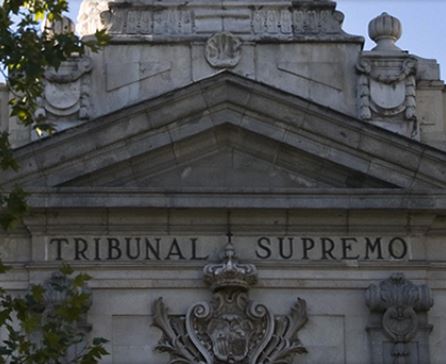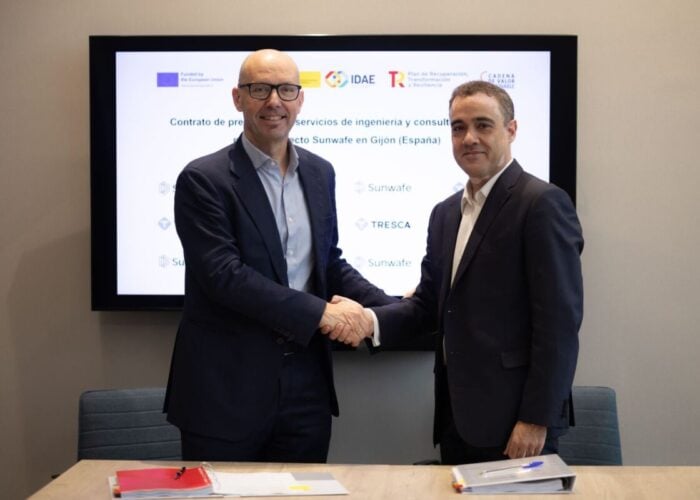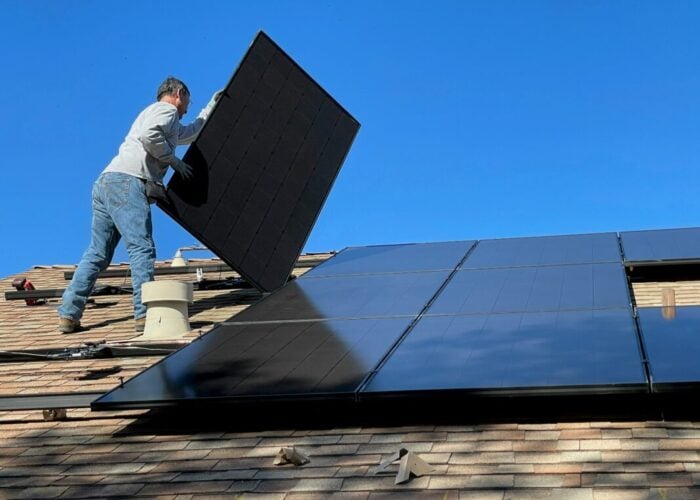
Renewable energy companies in Spain are making claims against banks for misleading them over complex financial products since the economic crisis.
Barcelona-based law firm Jausas analysed loans for around 30 solar firms between 2008 and 2013, which involved derivatives known as Interest Rate Swaps (IRS) or a Collar. It found that in every case, banks sold the swaps above the market price. The same was true of loans for 30 wind companies and 140 other small and medium size enterprises.
Try Premium for just $1
- Full premium access for the first month at only $1
- Converts to an annual rate after 30 days unless cancelled
- Cancel anytime during the trial period
Premium Benefits
- Expert industry analysis and interviews
- Digital access to PV Tech Power journal
- Exclusive event discounts
Or get the full Premium subscription right away
Or continue reading this article for free
Jordi Ruiz de Villa, partner at Jausas, said this was a “blatant disregard for the Law”.
So far, for renewable energy-related cases, Spain’s Supreme Court has made two judgments and both were in favour of the investors. The same outcome has been true of 14 out of 20 Regional Courts’ judgments regarding renewable energy companies.
As the Supreme Court rulings were only recent, De Villa expects the number of such disputes to increase significantly.
Helena Badger, lawyer at Spanish renewables specialist law firm Holtrop, which is representing several solar claimants on IRS-based issues, told PV Tech the claims are based on banks allegedly not providing sufficient information to investors on the risks and full complexity of these financial products.
In the meantime, the National Commission for Markets and Competition, the public authority responsible for guaranteeing free competition, following a complaint by a major wind company (VAPAT, S.L.U), has already launched a major investigation of four large banks over alleged collusion in offering such IRS swaps across multiple markets. These banks include Sabadell, Santander, Banco Bilbao Vizcaya Argentaria (BBVA) and Caixabank.
During 2015, the appeal courts gave 782 judgements on these kinds of contracts, of which 82% were in favour of the claimant, added Badger.
Rapid financing was necessary
Energy producers used to have incentives to invest in renewables because of favourable regulation in Spain, said Badger. They were awarded high market prices for the sale of their energy to encourage them to invest. However, there was a deadline on 30 September 2008 to complete installations and start feeding energy into the grid in order to receive the higher feed in tariffs.
Badger said: “This date is very relevant because it coincides with the economic crisis.”
Along with the deadline, interest rates were still high in Spain at the time, meaning producers, who needed rapid financing for their solar projects, were vulnerable to accepting the banks' unfair conditions.
The banks said that interest rates had been rising so producers would need so-called “insurance against interest rate fluctuations”. Banks then offered these complex financial products such as swaps, which producers would sign contracts for.
“They were signing it and then realising somewhat later that the interest rates were just falling, falling, falling,” said Badger. “They were stuck paying high interest rates and it wasn’t working like an insurance; it was just working as a minimum interest rate that they had to pay whatever the circumstances.”
The Supreme Court has found that typically there is a conflict of interest between the two parties, because for the bank to make money with these products, the client must lose money, added Badger. This conflict of interest is further aggravated by the fact that there is asymmetric information between the parties. The four major banks already under investigation also all offered swaps to renewable energy producers at the same time; all of them more or less with the same terms, while producers were faced with the time pressure of obtaining financing.
Small firms more likely to win
Smaller firms are more likely to be successful in litigation, as larger firms – those with annual turnovers or more than €20 million – are presumed to have strong enough advisory to fully understand complex financial products, such as swaps.
Holtrop only started on IRS cases four months ago and it is currently representing claims against BBVA. The firm has represented more than 3,400 producers in legal cases on the retroactive cutbacks against the Feed-in-tariffs and a large number of these producers had swaps in their financing. As a result many are considering taking legal action, however, some are struggling to finance litigation as a result of the punishing cutbacks.
Spanish solar association (UNEF) general director José Donoso told PV Tech the association is “convinced” that most claimants will win in such cases, given that until now, courts all across Spain have ruled in their favour.
He added: “The banks didn’t give people accurate information about a sophisticated product.”






